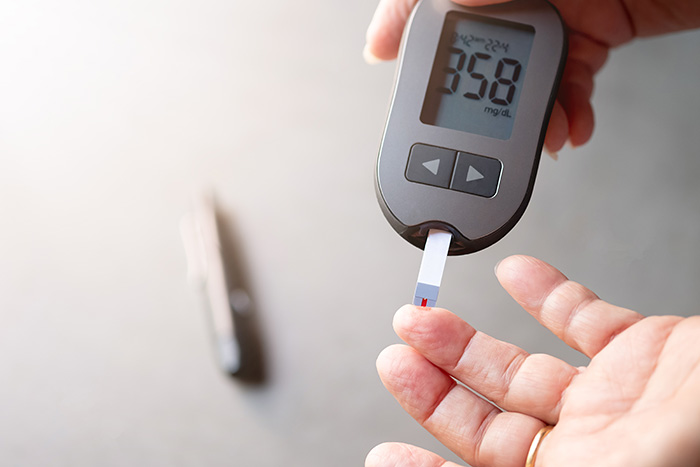Diabetes occurs when your pancreas doesn’t produce enough insulin or your body can’t make or use insulin well, causing sugar levels in your blood to rise. This can cause serious problems such as heart disease, kidney failure and more.
Diabetes is also one of the most common chronic conditions in Singapore! One in 10 suffers from the condition, and one in three people is at risk of developing it. To make matters worse, an average of four people with diabetes undergo amputations each day. With our ageing population and changing lifestyles, these numbers are expected to rise in the coming years — making prevention and good management more important than ever.
There are three main types of diabetes:
- Type 1 diabetes – an auto-immune condition where the body stops producing insulin. It usually starts in childhood or early adulthood and requires daily insulin injections.
- Type 2 diabetes – the most common form, often affecting adults above 40, especially those who are overweight or inactive.
- Gestational diabetes – develops during pregnancy and typically goes away after birth.
You’re more likely to develop diabetes if you:
- Are aged 40 or above
- Are overweight or lead a sedentary lifestyle
- Have high blood pressure or cholesterol
- Have a family history of diabetes
- Had gestational diabetes during pregnancy
The good news? Small lifestyle changes can make a big difference in helping manage the condition. Here are five steps you can start with:
#1 Track the glycemic index of your food
Carbohydrates don’t all affect your blood sugar in the same way. The glycaemic index (GI) ranks them on a scale from 1 to 100 according to how much they raise your blood glucose levels. Refined carbs like white rice or pastries have a high GI and should be taken in limited quantities. Instead, pick food with a lower GI, such as chickpeas, broccoli, and wholemeal pasta.
#2 Keep a healthy weight
Maintaining a BMI below 23 kg/m² can significantly lower your risk of complications. Combine balanced meals with regular physical activity to achieve sustainable results.
#3 Move more
Aim for at least 150 minutes of moderate exercise such as brisk walking, cycling or swimming, each week. Try for about 30 minutes a day, five days a week, with activities like brisk walking. Doing this can help improve insulin sensitivity and, in turn, help you control blood sugar levels.
For ideas on how to get started, check out this video with simple exercises catered to those with diabetes.
#4 Don’t skip meals
Skipping meals can cause your blood sugar to drop too quickly, especially if you take insulin or diabetes medication. These medicines help lower high blood sugar, but without enough food, they can sometimes make your levels too low. You may start to feel shaky, sweaty, hungry, or notice blurred vision. These are all signs that your body needs energy.
If this happens, remember the 15-15 rule: eat 15 grams of carbohydrates (for example, half a cup of juice or a tablespoon of sugar), wait 15 minutes, and recheck your levels.
#5 Quit smoking and limit alcohol
Smoking and excessive alcohol can worsen blood vessel damage and affect glucose control. Cutting back can improve your circulation, heart health and overall well-being.
Managing diabetes isn’t just about medication; it’s about making informed choices every day. Regular check-ups, healthy eating and self-monitoring with a blood glucose monitor can help you stay in control.
Learn more about diabetes and tips to manage the condition in our PharmaSays video, or visit FairPrice Online for supplements, glucose monitors and more that you’ll need.
Alternatively, you can visit your nearest Unity store with pharmacy services in Singapore for pharmacist advice on diabetes management, nutrition, and health supplements that support your wellness journey. Our friendly pharmacists are here to guide you every step of the way!




